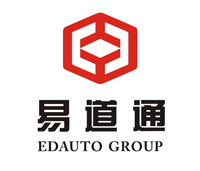Current Status of Hydrogen Fuel Cell Vehicles
The development of hydrogen fuel cell vehicles (FCVs) is at a critical
juncture, with increasing government support and a lukewarm market response forming a paradox. Recent policy initiatives such as the “Guiding Opinions on Energy Work in 2025″ issued by the National Energy Administration of China advocate the steady promotion of fuel cell vehicle applications. However, production and sales data tell a different story. According to the China Association of Automobile Manufacturers, China’s fuel cell vehicle production and sales in 2024 were 5,548 and 5,405 respectively, down 10.4% and 12.6% year-on-year respectively. This decline breaks the continuous growth trend since 2021 and highlights the deep-seated challenges facing the hydrogen fuel cell vehicle industry.
Proponents of hydrogen fuel cell technology tout its advantages, including zero emissions, high combustion efficiency, and high energy density. These properties make hydrogen a promising alternative to traditional fossil fuels. However, critics point out that hydrogen has low energy conversion efficiency and faces numerous challenges in transporting and storing hydrogen. This contradiction between policy support and market performance highlights the inherent complexity of the hydrogen fuel cell vehicle industry, indicating the need for a more cohesive strategy to bridge the gap between innovation and consumer acceptance.
Different strategies and global development
Looking around the world, the development of hydrogen vehicles shows a clear trend of differentiation. Countries such as Germany have made significant progress and built a train route that is completely powered by hydrogen. France has launched a hydrogen taxi program in cooperation with auto giants Hyundai and Toyota. Meanwhile, China has deployed nearly 30,000 hydrogen fuel cell vehicles and built more than 500 hydrogen refueling stations. Despite these advances, the market size and popularity of hydrogen fuel cell vehicles are still limited, and their costs are difficult to compete with existing lithium battery electric vehicles.
In China, automakers are taking very different strategies. Companies such as SAIC and Great Wall Motors are investing in developing their own hydrogen fuel cell technology, while companies such as BYD and Geely are focusing on hybrid technology. This divergence reflects the uncertainty about the future of hydrogen fuel cell vehicles and the broader energy landscape. In addition, challenges in hydrogen storage and transportation – such as the high cost of high-pressure tanks and the energy intensiveness of cryogenic liquid hydrogen storage – pose a significant barrier to widespread adoption. The construction of hydrogen transportation pipelines also requires significant investment, which further increases the economic feasibility of hydrogen fuel cell vehicles.
Call for international cooperation and investment
The potential advantages of hydrogen fuel cell vehicles are manifold. They offer a way to protect the environment, emitting mainly water vapor, which can significantly reduce greenhouse gases compared to conventional fuel vehicles. This is in line with the international community’s commitment to sustainable development and combating climate change. In addition, hydrogen is a versatile energy carrier that can be produced by various methods such as water electrolysis and biomass conversion, thereby enhancing energy security and reducing dependence on fossil fuels.
The continued research and development of hydrogen fuel cell technology not only promotes technological innovation, but also stimulates economic growth by creating new jobs in related industries. International cooperation is essential to the advancement of hydrogen energy technology, as many countries have participated in cooperative projects to promote the sharing of knowledge and resources. Governments around the world are also developing policies and standards to promote the development of the hydrogen energy industry, providing a valuable framework for the international community to follow.
As we strive to build an energy-based society, all countries must invest in the right path. The development of hydrogen fuel cell vehicles is a key step in this journey, but it requires the joint efforts of governments, industries and consumers. By cultivating public awareness of clean energy and sustainable transportation, we can cultivate a culture that prioritizes environmental protection and a low-carbon lifestyle.
In conclusion, the road to hydrogen fuel cell vehicles is full of challenges, but also opportunities. The commitment of Chinese automakers and the support of national policies are integral to this changing landscape. As we navigate the complexity of energy transition, let us call on all countries to invest in hydrogen technology and collaborate to achieve a sustainable future. Together, we can pave the way for a cleaner, more efficient energy society that will benefit future generations.
Email:edautogroup@hotmail.com
Phone / WhatsApp:+8613299020000
Post time: Apr-01-2025






